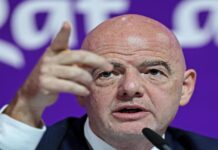Donald Trump has adopted many contradictory positions since taking office, but he has been unwavering on one point: that Russia played no role in putting him in the Oval Office. Trump dismisses the idea that Russian interference affected the outcome of the 2016 election, calling it a “made-up story,” “ridiculous,” and “a hoax.” He finds the subject so threatening to his legitimacy that—according to “The Perfect Weapon,” a recent book on cyber sabotage by David Sanger, of the Times—aides say he refuses even to discuss it. In public, Trump has characterized all efforts to investigate the foreign attacks on American democracy during the campaign as a “witch hunt”; in March, he insisted that “the Russians had no impact on our votes whatsoever.”
Few people, including Trump’s opponents, have publicly challenged the widespread belief that no obtainable evidence can prove that Russian interference changed any votes. Democrats, for the most part, have avoided attributing Hillary Clinton’s defeat directly to Russian machinations. They have more readily blamed James Comey, the former F.B.I. director, for reversing Clinton’s thin lead in the final days of the campaign by reopening a criminal investigation into her mishandling of classified e-mails. Many have also expressed frustration with Clinton’s weak performance as a candidate, and with her campaign’s tactical errors. Instead of investigating whether Russia tipped the electoral scales on its own, they’ve focussed on the possibility that Trump colluded with Russia, and that this, along with other crimes, might be exposed by the probe being conducted by the special counsel, Robert Mueller.
The U.S. intelligence community, for its part, is prohibited from investigating domestic political affairs. James Clapper, the former director of National Intelligence, told me, “We try not to spy on Americans. It’s not in our charter.” He emphasized that, although he and other intelligence officials produced—and shared with Trump—a postelection report confirming an extensive cyberattack by Russia, the assessment did not attempt to gauge how this foreign meddling had affected American voters. Speaking for himself, however, he told me that “it stretches credulity to think the Russians didn’t turn the election.”

















